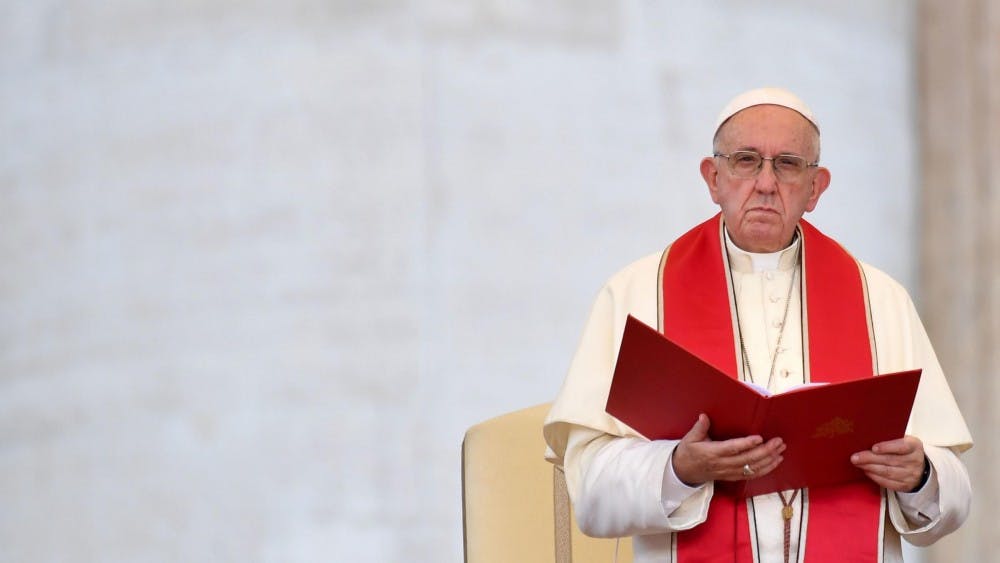Abigail Roberts | Staff Writer
According to BBC News, the 1.2 billion-member Catholic Church continues to globally face the exposure of decades of sexual abuse, specifically the abuse of minors.

Discussion on sexual abuse within the Catholic Church exploded into the U.S. public eye in 2002 after a report by the Boston Globe investigative team, Spotlight.
Spotlight's publication unleashed a waterfall of victim testimonials, both in the U.S. and around the world, despite the fact that the victims' ability to legally file a charge had expired on many of these cases.
Taylor is home to almost a dozen Catholic students, primarily from Central and South America.
"As a Catholic it is hard to hear about all of it," freshman Elizabeth Magallanes said. "It's really heartbreaking. I can't even wrap my mind across the fact that there are priests doing this."
In a time when sexual abuse is more widely discussed, an open platform has emerged for these issues to be brought into the light.
In September, a study revealed that German priests sexually abused 3,677 minors between 1946 and 2014. The study was carried out by three German universities and revealed many documents related to sexual abuse in the Catholic Church were destroyed.
"As we look at how the abuse scandals have impacted the churches," Assistant Professor of Biblical Ministries Hank Voss said. "We see that sin revealed destroys sin concealed. Sin always loses power when it is brought into the light."
5,700 to 10,000 Catholic priests have been accused of sexual abuse thus far in the U.S., according to Eyewitness News. The full number of victims range as high as 100,000, with tens of thousands of other victims coming forward around the world.
In the largest report revealed since Spotlight, last August, Pennsylvanian's Grand Jury uncovered 300 predator priests with reports of over 1,000 victims in six Pennsylvania diocese, according to America Magazine.
Survivors testify that worse than the abuse was the lack of response and secrecy they encountered when coming forward. It was evident the Catholic Church would take extensive measures to prevent scandal. Abusive priests were kept in their office and simply moved to different dioceses. All actions possible were taken to keep a circle of secrecy around the events.
"If one member suffers, all suffer together with it (1 Cor 12:26)," Pope Francis said in his 2,000-word response letter released to the world on Aug. 20. "Looking back to the past, no effort . . . done will ever be sufficient. Looking ahead to the future, no effort must be spared to create a culture able to prevent such situations from happening . . . We feel shame when we realize that our style of life has denied, and continues to deny, the words we recite."
Pope Francis, despite his powerful words, has yet to put any rules or laws in place which require the dismissal of abusive priests. Despite a four-day conference held in the Vatican this past February to discuss a plan to transform Catholic Church culture, NBC News said there has yet to be a clear protocol.
It is important to note that sexual abuse is not unique to the Catholic Church and should be equally assessed across all religious institutions.
"The world is full of evil and full of bad things," Magallanes said. "In all other religions there is murder and abuse and rape and all kinds of things, I don't think it has to do with being Catholic."
However, in light of these allegations and findings, members of the Catholic Church are understandably left in states of confusion and disillusionment.
Leaders in the Catholic Church believe people's anger toward the Catholic Church is healthy and necessary but should be directed at seeking change, not at harming others, according to NPR.
"I don't think there is any correlation between how it should or shouldn't affect my faith," Magallanes said. "I don't worship the church or the priest, I worship God. Because my faith is so strong because I believe in him, that's why I've been able to stay strong."





